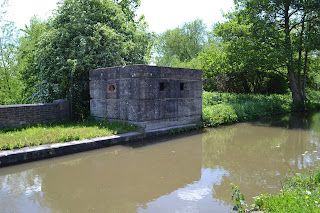 |
| Edward Hopper's Room in New York... And there is a link to this week's Short Story Sunday, I promise... Just read on... |
It’s
Sunday again (it does seem to come round very quickly), and that means it’s
time for another short story, so out of my wonderful Persephone anthology comes Here
We Are, by Dorothy Parker, which I didn’t really like. I’d never read any of her fiction before, and
I’d expected something sharper, wittier, more satiric.
Written
in 1931, set in America, it features a young couple travelling by train to
their honeymoon hotel. They’ve been married exactly two hours and twenty-six
minutes, though to her it already seems longer, and here they are, alone
together, not knowing what to say to each other. They are obviously nervous, and slightly
embarrassed, but their conversation is so strained I really do wonder if they
have anything in common at all. It would seem not, for at one point Parker
writes:
“I don’t
know,” she said. “We used to squabble a lot when we going to together and then
engaged and everything but I thought everything would be so different when you
were married. And now I feel so sort of strange and everything. I feel so sort
of alone.”
Despite
their protestations that they ‘won’t fight or be nasty or anything’ they are
very quarrelsome couple– especially her. They bicker about her new hat, her old
admirer, bridesmaid Louise and how they should spend their wedding night... she
has letters she ‘simply must’ write, while he suggests going to see a show. And
even if he apologises and tries to placate her, she turns things around so he’s
still in the wrong, and she seems to take everything he says the wrong way, and
to twist it, reading more into it, and making it mean something he never
intended.
Somehow
I feel their future as husband and wife is going to be terribly bleak and
empty, and that she will become even more petty-minded, spiteful and downright
vindictive, punishing him because nothing will ever turn out as she hoped. And
he, easy-going, will be just as dissatisfied but will do anything to please
her, for the sake of a quiet life, and will never understand what it is that he
has done wrong.
I
would have to say I loved the opening of this tale as the nervous young man in
his new blue suit spends too long arranging their ‘glistening luggage’ in the
Pullman carriage – obviously putting off the moment when he and his bride must
communicate in some way. In fact, not only do they never seem to connect
mentally or emotionally, but there is no contact between them, for they sit
opposite each other and the girl, who looks ‘as new as a peeled egg’ finds it
hard to meet his eyes, and prefers to gaze out of the window. These two never
touch. They are strangers, and it’s like one of those Edward Hopper paintings,
where people always seem so lonely, even if they are together. I think Room in New York, painted in New York in 1932 kind of captures the feeling of separateness of this couple, who are headed for a hotel in the city.
Parker
manages to create the image and atmosphere in very few words, and to place these
two in their social class through the description of their cheap shiny luggage,
and their cheap shiny clothes. And they’ve got a new life to match their new
possessions but, sadly, it will be no better than the old. I thought this first
page was so well written, and I had high hopes of what was to come, but as far
as I was concerned it was all downhill after that, because it was all dialogues.
Eleven-and-a-half pages of dialogue.
You
can tell I’m not keen on lots of dialogue, except in plays, of course. Personally,
I blame Walter Scott, because I’ve had an aversion to conversation-dominated
fiction since studying Guy Mannering at school, with all that incomprehensible,
archaic Scottish dialect. It put me off Scott for life as well. Am I the only
one who feels that too much dialogue in a novel or short story is a bad thing?
And has anyone else been that influenced by something they read and hated when
they were young?























